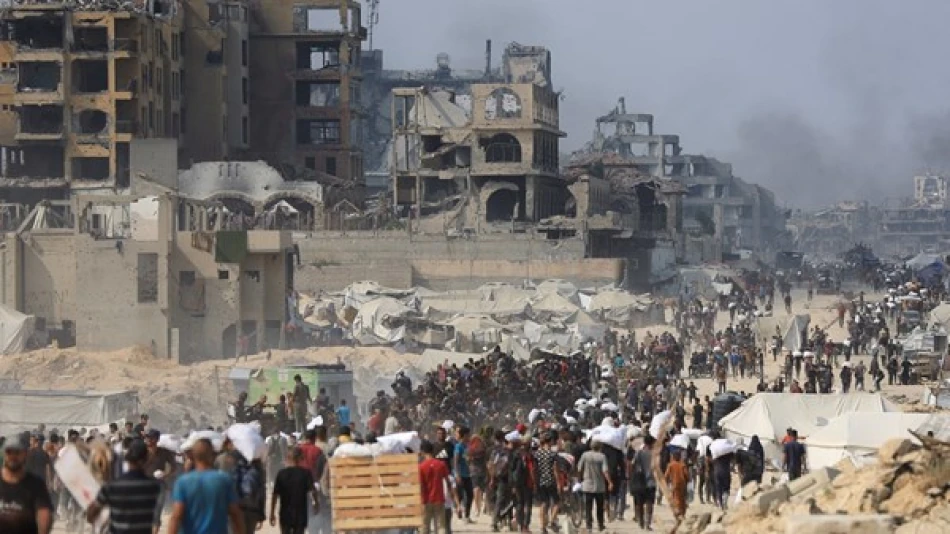
Macron Responds to Israel's Plan to Occupy Gaza
Macron Warns of "Unprecedented Catastrophe" as Israel Expands Gaza Operations
French President Emmanuel Macron delivered a sharp rebuke to Israel's military strategy on Monday, warning that plans to intensify operations in Gaza could trigger an "unprecedented catastrophe" and endless warfare. His proposal for a UN-mandated international coalition signals growing European frustration with Israel's expanding military footprint and represents a potential diplomatic shift that could reshape international involvement in the conflict.
Israel's Strategic Expansion Draws International Backlash
Last week, Israel's security cabinet approved plans to expand control over Gaza City, marking a significant escalation in the scope of military operations within the territory. The decision has sparked fierce criticism both domestically and internationally, with opponents arguing it represents a dangerous expansion of Israel's military objectives.
Macron's office issued a statement condemning the Israeli cabinet's announcement to "expand operations in Gaza City and the tent areas in al-Mawasi and reoccupy them," describing it as a step toward "endless war." The French president specifically highlighted that both Israeli hostages and Gaza residents would become "the primary victims of this strategy."
France Proposes UN-Backed International Coalition
Beyond criticism, Macron's proposal for a UN-mandated international stabilization force represents a significant diplomatic initiative. This approach mirrors France's historical preference for multilateral solutions to Middle Eastern crises, reminiscent of its role in Lebanon's UNIFIL peacekeeping mission.
Strategic Implications for Regional Stability
The French proposal comes at a critical juncture when international patience with the conflict's duration and humanitarian impact appears to be waning. Unlike previous conflicts where European nations largely deferred to US leadership, Macron's initiative suggests a more assertive European role in Middle Eastern diplomacy.
This diplomatic push aligns with France's broader strategy of positioning itself as an alternative mediator to American influence in the region, particularly as other European allies have expressed similar concerns about the conflict's trajectory.
Growing International Isolation Concerns
Israel's decision to expand operations despite international pressure reflects a calculated risk that could further strain relationships with key allies. The criticism from France, a permanent UN Security Council member and significant European power, indicates that Israel may face increasing diplomatic isolation if military operations continue to expand.
The timing of Macron's statement is particularly significant, coming as other international actors reassess their positions on the conflict. This coordinated international pressure could potentially influence Israel's strategic calculations, especially if it begins to affect military aid or diplomatic support from key allies.
The success of any international coalition would depend heavily on broader support from regional powers and whether the United States would back or oppose such an initiative, making the coming weeks crucial for determining the international community's unified response to the escalating situation.
Most Viewed News

 Layla Al Mansoori
Layla Al Mansoori






